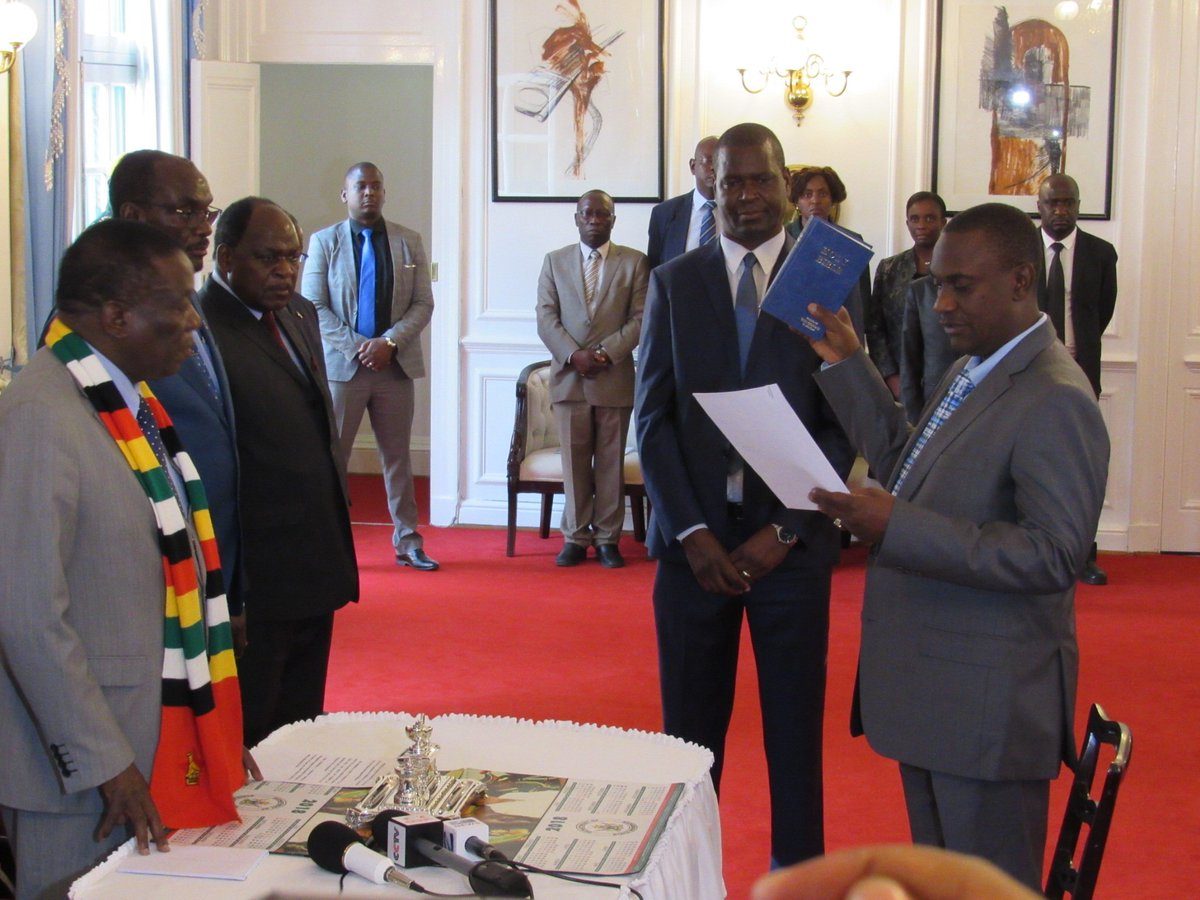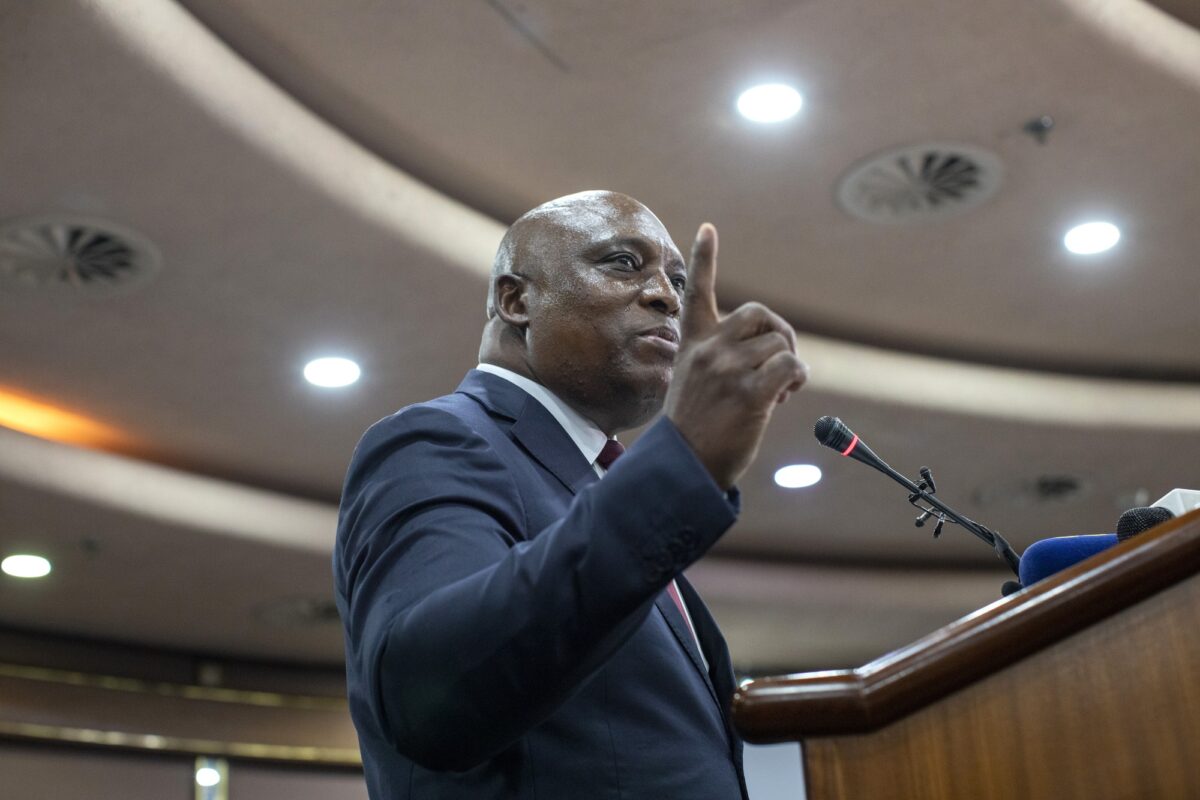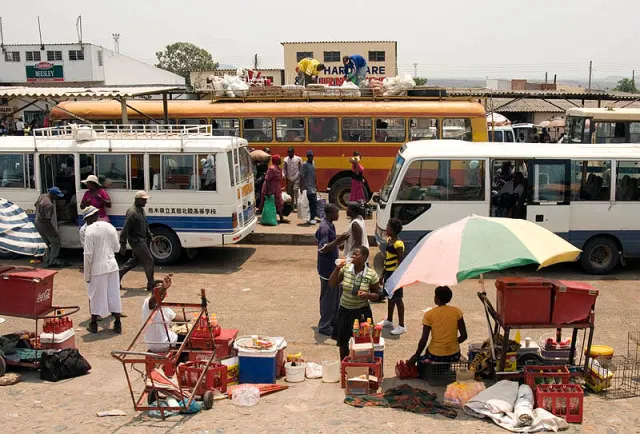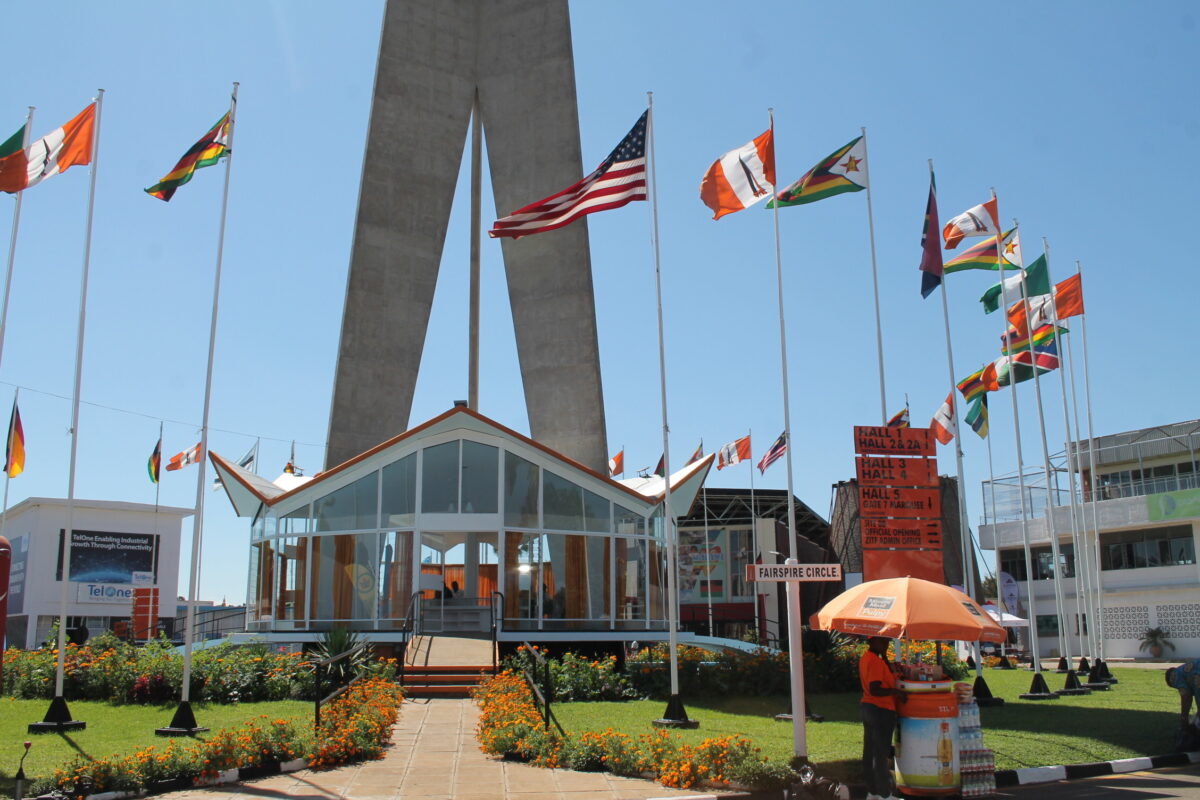HARARE – President Emmerson Mnangagwa named one of his closest allies as National Security Minister on Wednesday.
If Mnangagwa’s Cabinet announced on September 7 offered a glimmer of hope for Zimbabwe’s democratisation project, commentators said Owen Mudha Ncube’s appointment showed a leader hankering for Zanu PF’s violent past.
Ncube – widely known as Mnangagwa’s enforcer – has been named in violent gold wars in the Midlands city of Kwekwe, and was the leader of a notorious Zanu PF terror group known as Al Shabaab, which takes its name from its infamous Somalian cousin.
“Mnangagwa’s appointment of Owen Ncube, who used to run the notorious Zanu PF vigilante group Al Shabaab in Kwekwe and his known violent enforcer as National Security Minister tells us that Mnangagwa is not ready to reform,” political commentator, Pedzisai Ruhanya said on Twitter.
The Central Intelligence Organisation (CIO), which Ncube now takes charge of, was known in the past for abductions, extrajudicial killings and causing the disappearence of political opponents of former President Robert Mugabe. Mnangagwa, who deposed Mugabe in a military coup last November before winning a disputed election in July, had promised to change.
“The Security ministry is simply the Ministry of Gukurahundi, Murambatsvina and Political Violence,” said Nkululeko Sibanda, the spokesman for opposition MDC leader Nelson Chamisa, referring to some of the dark episodes in Zimbabwe’s past in which the CIO has played a central role.
“It is a ministry that is always responsible for extralegal activities, disappearances and human rights abuses. Mnangagwa could not resist his specialty – you cannot have a mafia regime that does not have an enforcer.”
Sibanda said Ncube’s “relationship with violence is second to none and that alone exposes the illegitimate President’s real agenda.”
Ahead of the July 30 elections, Ncube was filmed parceling out $2 notes at a rally in Gokwe Kana constituency. The opposition said he was buying votes, which is illegal under the country’s electoral laws.
Victor Chimhutu, founder of the Zimbabwe Yadzoka grassroots social movement, said Ncube’s appointment showed Mnangagwa – who has been trying to repackage himself as a reformist intent on closing the chapter of Zanu PF’s violent past, had no plans to use persuasion over brute force, which the new minister represents.
“When such people are catapulted to high offices, it reveals more about the appointing authority,” Chimhutu said.
Mnangagwa had dropped all pretenses of a “lean Cabinet”, the MDC said. Ncube is the second appointment after the bulk of the Cabinet ministers was announced on September 7. Mnangagwa later appointed Dr John Mangwiro has deputy health minister.
“The lean Cabinet is expanding on a daily basis as he adds more and more of his friends and loyalists,” MDC spokesman Jacob Mafume told ZimLive. “The nepotism and regionalism on display, with no obvious qualification by those being appointed, is breathtaking.”
Political analyst Alex Magaisa wondered: “How many more are coming?”
Mnangagwa’s Cabinet now has 21 ministries. He also has 14 deputy ministers, nine provincial ministers and two ministers of state in the offices of Vice Presidents Kembo Mohadi and Constantino Chiwenga. All 46 will be issued with brand new vehicles, two each – a Mercedes and an off-road 4×4. The perks are a massive drain on the cash-strapped country’s fiscus.















